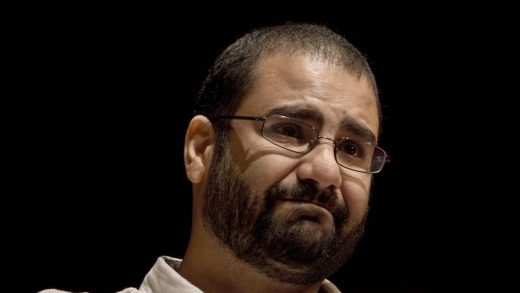Armenian exodus from Nagorno-Karabakh ebbs as Azerbaijan moves to reaffirm control

The last bus carrying ethnic Armenians from Nagorno-Karabakh left the region Monday, completing a grueling weeklong exodus of over 100,000 people — more than 80% of the residents — after Azerbaijan reclaimed the area in a lightning military operation.
Gegham Stepanyan, Nagorno-Karabakh’s human rights ombudsman, said that the bus that drove into Armenia carried 15 passengers with serious illnesses and mobility problems. He issued a call to share information about any other residents who want to leave but have trouble doing so.
In a 24-hour military campaign that began on Sept. 19, the Azerbaijani army routed the region’s undermanned and undergunned Armenian forces, forcing them to capitulate, and the separatist authorities agreed to dissolve their government by the year’s end.
While Baku has pledged to respect the rights of ethnic Armenians in Nagorno-Karabakh, the bulk of them have hastily fled the region, fearing reprisals or losing the freedom to use their language and to practice their religion and cultural customs.
The Armenian government said Monday that 100,514 of the region’s estimated 120,000 residents have crossed into Armenia.
Armenian Health Minister Anahit Avanesyan said some people had died during a grueling and slow journey over the single mountain road into Armenia that took as long as 40 hours.
Azerbaijani authorities moved quickly to reaffirm control of the region, arresting several former members of its separatist government and encouraging ethnic Azerbaijani residents who fled the area amid a separatist war three decades ago to start moving back.
After six years of separatist fighting ended in 1994 following the collapse of the Soviet Union, Nagorno-Karabakh came under the control of ethnic Armenian forces, backed by Armenia. In a six-week war in 2020, Azerbaijan took back back parts of the region in the south Caucasus Mountains along with surrounding territory that Armenian forces had captured earlier.
On Sunday, Azerbaijan’s prosecutors issued an arrest warrant for ex-Nagorno-Karabakh leader Arayik Harutyunyan, who led the region before stepping down at the beginning of September. Azerbaijani police arrested one of Harutyunyan’s former prime ministers, Ruben Vardanyan, on Wednesday as he tried to cross into Armenia.
The Armenian authorities have accused Russian peacekeepers, who were deployed to Nagorno-Karabakh after the 2020 war, of standing idle and failing to stop the Azerbaijani onslaught. The accusations were rejected by Moscow, which argued that its troops didn’t have a mandate to intervene in the fighting.
The mutual accusations have further strained the relations between Armenia, and its longtime ally Russia, which has accused the Armenian government of a pro-Western tilt.
Armenian Prime Minister Nikol Pashinyan alleged Thursday that the exodus of ethnic Armenians from Nagorno-Karabakh amounted to “a direct act of ethnic cleansing and depriving people of their motherland.”
Azerbaijan’s Foreign Ministry strongly rejected Pashinyan’s accusations, arguing that the departure of Armenians was “their personal and individual decision and has nothing to do with forced relocation.”
A United Nations delegation arrived in Nagorno-Karabakh Sunday to monitor the situation. The mission is the organization’s first to the region for three decades, due to the “very complicated and delicate geopolitical situation” there, U.N. spokesperson Stephane Dujarric told reporters Friday.
Local officials dismissed the visit as a formality. Hunan Tadevosyan, spokesperson for Nagorno-Karabakh’s emergency services, said the U.N. representatives had come too late and the number of civilians left in the regional capital of Stepanakert could be “counted on one hand.”
“We walked around the whole city but found no one. There is no general population left,” he said.
Credit: Armenian exodus from Nagorno-Karabakh ebbs as Azerbaijan moves to reaffirm control


